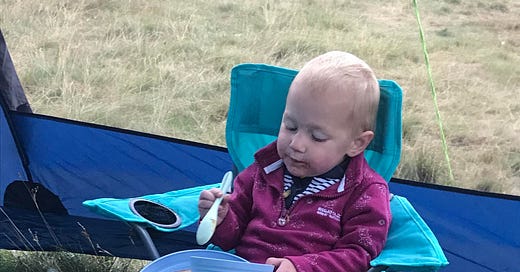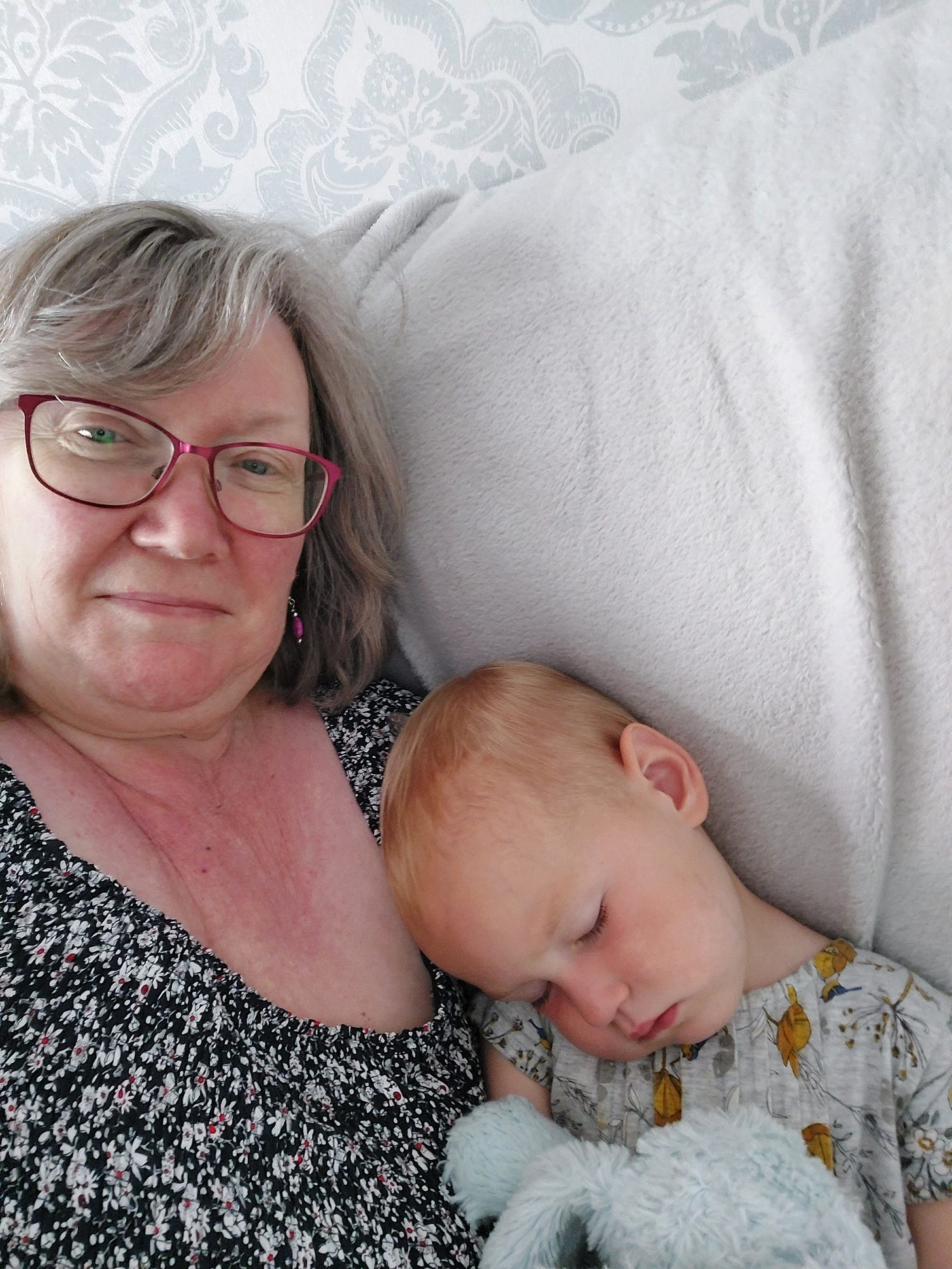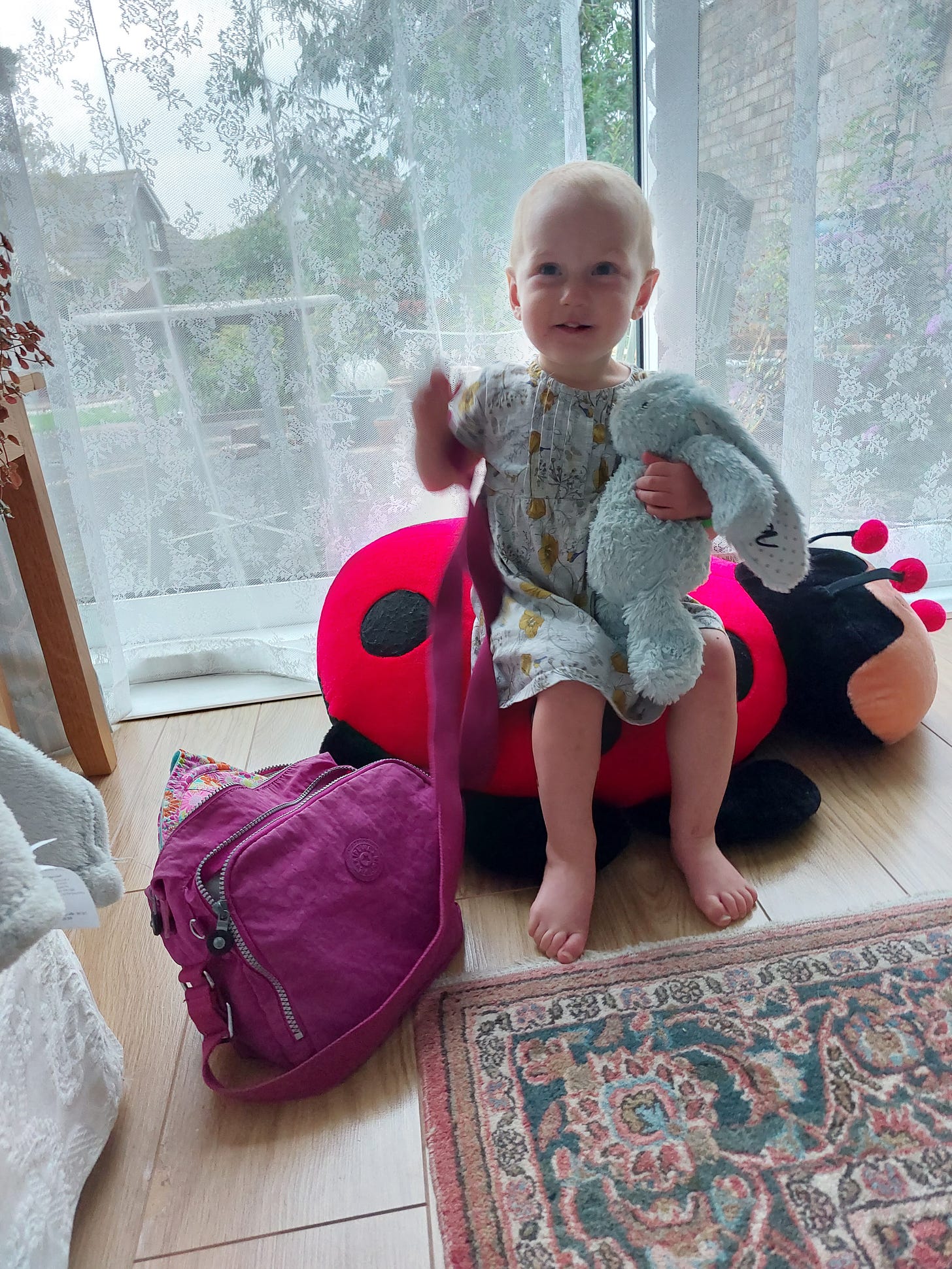Anxiety, avoidance and childhood development
I don’t see this wonderful human being very often.
Luna is just 2 years old – and our homes are 300 miles apart. And to be honest, she isn’t in the least bit interested in talking to me on video camera nor by phone. Her mum calls regularly - but Luna’s attention span, as is to be expected, is not very long. Quite frankly, she is too busy doing what she should be doing – exploring, discovering, testing things out.
When I was a toddler, I had a host of carers while my mum and dad worked – my great grandmother (with whom my mum, dad and I lived), my grandmother and my great aunt. Luna, too, is fortunate to be cared for by those who love her dearly, while mum and dad work. She sleeps over nearly every week with grandad Steve, and with her other grandad and step grandmother.
As for me? Well, Luna and I manage a few days together every 6-8 weeks. But Luna is 2 years old … While I am “kept alive” in conversations between her and her mum, while she sees me on screen (though rarely engages), while her mum lets her know I am an important and valued person in their lives – she does not know me the way she knows her other grandparents. So when we met up a few weeks ago, it’s fair to say Luna was anxious. She resisted coming to me, she was upset, and clung to her mum.
Now Luna can’t articulate why she feels this way – she can’t explain. She simply turned away from me, and buried her head in mummy’s chest. My daughter is a good mum! She knows this is normal. This is how Luna, and a majority of other 2 year olds behave when faced with people they do not see often, or have never met before. This normal behaviour exists for a reason, an evolutionary reason, aimed at keeping vulnerable young offspring safe.
My daughter was able to show Luna I was a trusted person, safe – not someone to fear. She encouraged her to play with me, to talk to me, by modelling - playing with me and talking to me herself. Luna became a little less anxious. While she didn’t speak, she started to play … But when it was time for mum to go to work, mum just had to step away. Luna cried, ran after mum, appeared resistant and defiant.
But mum had done her job. She had conveyed to Luna that I was a safe and trusted person. When I opened my arms, Luna came to me. I scooped her up and we snuggled on the sofa. She cried for a while longer, as I spoke gently, reassuring her, cuddling her in and reading her a story … she dozed off in my arms, and I snoozed too!
When Luna woke up, she was fine. She quickly became her bubbly, chatty, inquisitive self. She explored her new surroundings (holding tight, at first, onto Granny’s finger) and soon the sound of her laughter filled the room, and filled my heart with joy.
Luna and I had a great couple of days together. She needed reassurance from time-to-time that she would be seeing mummy and daddy soon. And she showed her displeasure when I reminded her of my rules! But Luna is used to different rules – at home, with grandad, in nursery. Luna was delighted to see mummy and daddy again a couple of days later, and to tell them all about her holiday with granny.
Anxiety like this is normal; it is part of normal childhood development. Responding to it as my daughter did, enables children to learn, to grow, to solve problems. It enables them to develop trust – to trust in themselves, their judgement and the people who love them. It helps them to learn that they can love, and be loved, by a number of people. It helps them to adapt to change and to regulate their emotions.
How different this could have been. What if mum had never kept me alive in Luna’s life? If mum had never spoken about me, shown me on video, or in photographs. What if mum’s talk and mum’s body language had conveyed to Luna that I was someone to be feared, not valued. What if mum had not spoken to me, had not joined in play, had not felt able to let Luna out of her sight. Or what if mum broke down in tears as she left Luna in my care, or held on to her so tightly, for far too long … What if I had berated mum for not being helpful enough? What if I had prematurely snatched Luna from her mum and insisted she leave? What if I did not reassure Luna that she would see mummy and daddy again shortly?
I don’t think I am able to sufficiently convey how frustrated I feel when I see some other professionals, who should know better, reinterpret normal, reasonable anxiety into something else. It is absolutely to be expected that a child who has not seen a parent (or grandparent!) for 3 months, 6 months, a year or more will likely be anxious. This is even more so when they have not been kept alive in that child’s life or memory, or when they have been encouraged to fear, where fear is not justified.
Children in these circumstances will often be upset, distraught even, crying in protest, clinging on to a parent, or physically resisting - kicking out or running away. Such behaviour does not usually mean that a child is expressing fear of a parent who has been kept physically and psychologically distant from them, though we must be alert to where fear is justified. Continued distancing – keeping the child away from the parent – will not resolve the child’s anxiety. Avoidance is rarely, if ever, the solution to irrational fear.
I know that my love of Luna, my importance, my value in her life is fully supported and encouraged. I look forward to the day when my turn comes; when Luna runs up to me arms open wide, shouts out “Granny!” and barely looks back at mum as we set off on adventures together, in my campervan, Penelope …
Thank you for reading Let’s talk about it … This is a public post, so please feel free to share.
Next week, I will begin publishing a series of posts which apply a psychological lens to recent family court judgements, and media articles, about children and families. If you would like to read these as soon as they are published, please consider a paid subscription.






